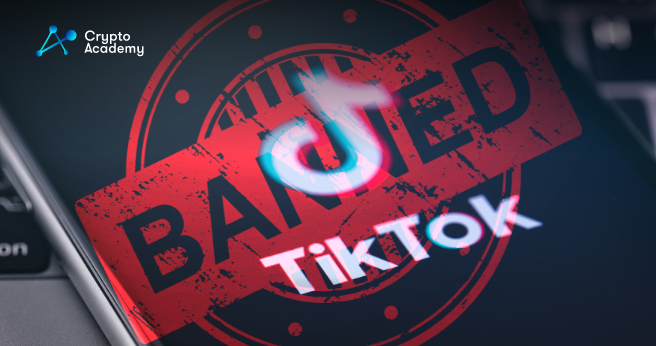The proposed TikTok ban has sparked concerns among legal and policy experts at Coin Center, who warn that it could also be used to clamp down on cryptocurrencies. According to the crypto-focused non-profit, the legislation’s language could be open to an overly broad interpretation that prevents Americans from accessing “entire classes of technologies,” whether foreign adversaries are interested in them.
A Possible Threat?
The Restricting the Emergence of Security Threats that Risk Information and Communications Technology Act, introduced on March 7th, would give the Department of Commerce broad authority to regulate tech products produced in countries with adversarial relations to the United States. Specifically, the department would be required to investigate and prevent uses of such technology which involve adversarial interests and which pose a national security risk to the United States.
Coin Centre likens the new legislation to the Office of Foreign Asset Control (OFAC) regime, which allows it to block Americans from transacting with sanctioned foreign powers. However, unlike OFAC’s powers granted under the Emergency Economic Powers Act (IEEPA), the RESTRICT Act doesn’t contain a carve-out for protected speech activities, nor does it require the President to declare a national emergency before preventing transactions.
“We would object to an overbroad interpretation of “interest” wherein the Secretary attempted to argue that the entire class of all Bitcoin transactions, for example, is a class of transactions in which U.S. foreign adversaries have an interest,” read Coin Centre’s statement.
The concern is that the RESTRICT Act could be used to block Americans’ access to open-source tools or protocols like Bitcoin, which is not produced in a country with adversarial relations to the United States. While the likelihood of such an extreme case is debatable, it highlights the potential unintended consequences of poorly drafted or too broadly worded legislation.
“A broad and discretionary power to ban and disrupt all manner of information technologies should not be wielded without appropriate oversight and opportunity for review,” wrote Coin Centre.
This is not the first time that the crypto industry has faced regulatory scrutiny or legal challenges. The SEC recently fined crypto exchange Kraken $30 million for failing to register its staking services as a security. The agency also targeted Coinbase with a Wells Notice for providing a similar product.
Regulatory Pressure
Regulators, including the Treasury Department, have also forced Signature Bank to close, one of the United States’ most crypto-supportive banks. Barney Frank, a former congressman and board member for the bank, claimed the regulators did this deliberately to send an “anti-crypto message.”
Crypto advocates are concerned that these regulatory actions and legislative proposals could push the industry overseas, where it may be subject to less scrutiny or more favorable regulatory environments. This would harm American innovation and competitiveness and potentially put Americans at greater risk by driving the industry underground.
It is important to strike a balance between protecting national security and promoting innovation and economic growth. The RESTRICT Act, if passed, should be carefully scrutinized and amended to avoid unintended consequences and ensure that it does not impede Americans’ access to important technologies.
While the TikTok ban may not directly impact cryptocurrencies, it highlights the potential unintended consequences of poorly drafted or overly broad legislation. The crypto industry, already facing regulatory scrutiny and legal challenges, must remain vigilant and advocate for a regulatory framework that balances innovation, consumer protection, and national security.

